In the world today there is a moving shift towards renewable energy such as solar and wind.
Because of this shift, there is a higher need for energy storage, for it to be released later when the Sun isn't shining or wind isn't blowing.
One of the most common ways of storing the solar or wind energy, are lithium ion batteries. Tesla is has been installing utility battery power pack systems, in Hawaii and Australia.
Tesla's Powerpack is based on lithium ion technology, which has been improving vastly the last couple of years.
The charging speed of the lithium ion batteries is drastically increasing along with the long term cycle battery life,
the same is true for the energy density.
On a utility scale, battery technology does have the advantage of a rapid install time to energy fluctuation needs. But despite to all this when it comes to the application of utility energy storage there are still some questions. The long-term cost and the real long-term battery cycle life, in terms of current generation batteries.
There is another energy storage method that's a pretty interesting take on the problem at hand. It involves the storage and release of energy using mountains as natural pressure vessels.
This method has been achieved by a Swedish company called ALACAES, promises really low cost and high efficiency.
Methods like that attempt to smooth fluctuations in electricity production, due to the nature of renewable energy.
Which is unpredictable. The method that they are working on, is one with relatively low cost and high efficiency.
How does it work?
The system uses excess energy from the grid, to pump pressurized air into a cavity within a mountain.
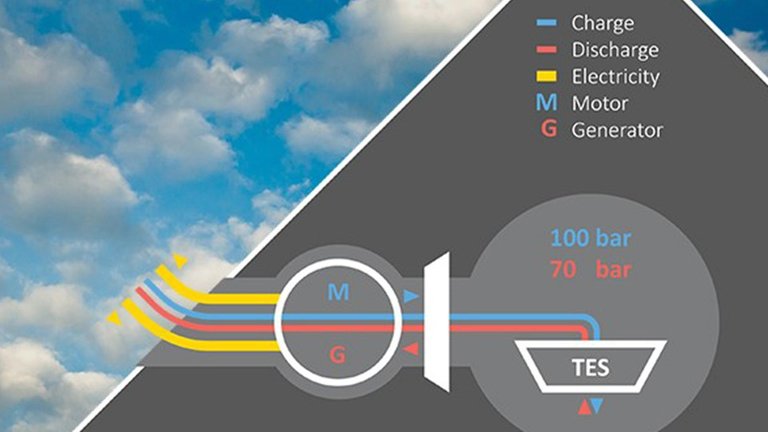 The air is the cooled down using specialized technology called thermal energy storage. And then stored withing the pressure cavity. When it is time to generate electricity the air is the heated up again and pushed out to run a turbine that produces electricity.
The air is the cooled down using specialized technology called thermal energy storage. And then stored withing the pressure cavity. When it is time to generate electricity the air is the heated up again and pushed out to run a turbine that produces electricity.
With this system ALACAES claim over 72% round trip efficiency.
For this technology to be used geology has to be taken in to account. It is suited for usage in the continent of Europe, America, Canada but especially India and China.
India and China are especially fit for this because those two markets have had very aggressive goals in providing renewable energy to run their country's infrastructure. By 2027 is aiming for 60% of its energy to be provided by sources outside from fossil fuels. Meanwhile China has been decreasing its coal usage by 5 % year over year, and have just overtaken United States as a leader in renewable energy.
Why the mountains?
The mountains can be used as containers to store pressurized air, due to their size and mass.
If you want to store extremely large amounts of pressurized gas you need an extremely durable and large container, therefore geology can be exploited in an attempt to create natural containers.
In 2016 the company completed their first test plant, located in the Swiss Alps. The plant is the shape of a 120 meter long and 5 meter diameter tunnel with an energy capacity of one megawatt-hour.
The Swiss Federal Office of energy financed the 40% of this project as they could see a benefit to their country.
At the moment this technology is cheaper than lithium ion batteries. It is at a factor of four to six times less than batteries per kilowatt hour scale.
The same technology has been used before.
There are two plants already running in the world, one of them is in Germany. It was build in 1979 and the other one is in USA - Alabama, which was created in 1991.
They use salt caverns, underground where the air is being compressed. However there are a few problems with that.
When the air is compressed, it heats up, the heat needs to be stored. This heat can be up to 60% of the energy used to compress the air. The existing plants just discard this energy and when the time comes to expand the air again they uses fossil fuels to heat it up. Burning fossil fuels produces Co2 emissions and reduce plant efficiency.
New technology provides the opportunity of storing this heat, which can be re-used to heat the air up again.

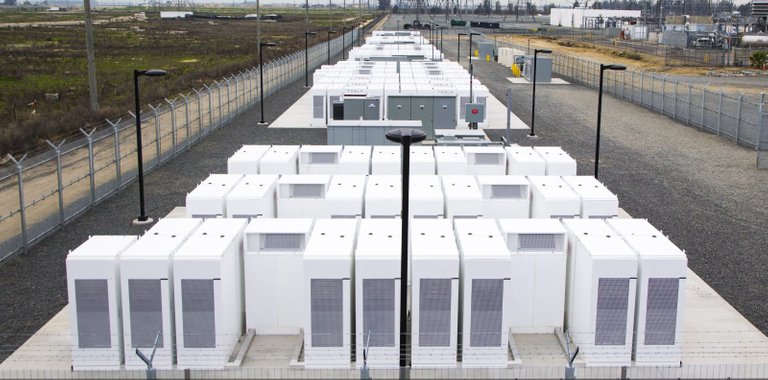



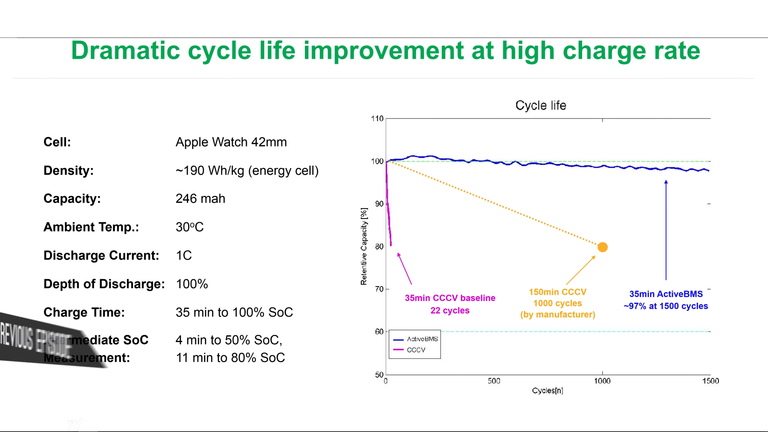

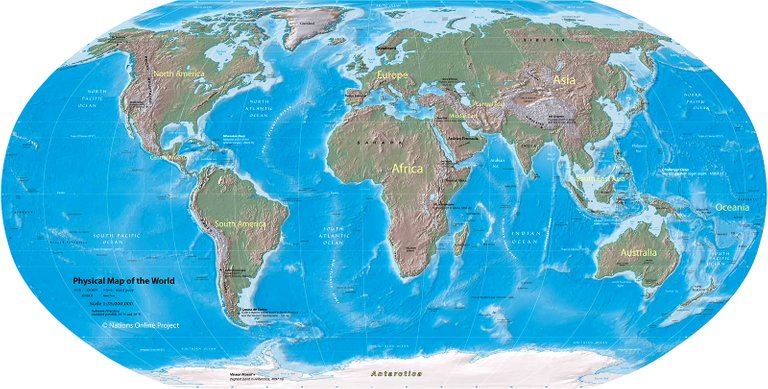
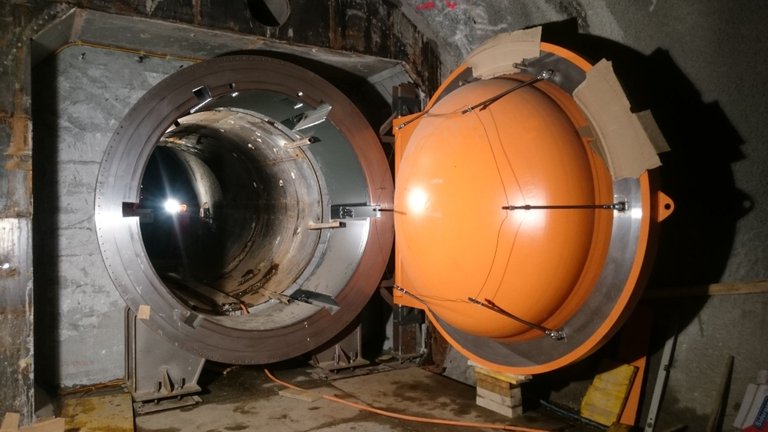


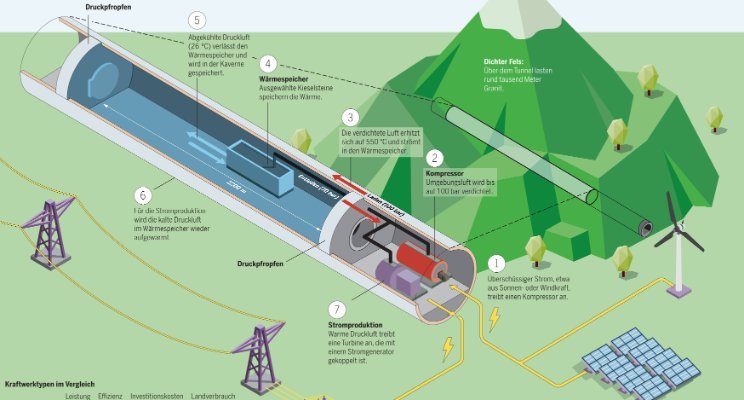

ALACAES are targeting big institutions as partners for new projects, as it costs from about 100 million to 200 million U.S dollars to build a 200 to 500 mW/h output, but the bigger the project the more it makes sense and the more it makes value for money.
ALACAES OFFICIAL SITE
Thanks for reading! Feel free to follow, vote and Re-esteem if you find it useful. You can find more articles here:https://steemit.com/@sungazer13
Awesome article but there are many places where mountains are not present or if they are present the environment is too harsh to implement this technology.
I agree, it can't be used everywhere, however I found the technology interesting. Wanted to share it will the world of Steem :D
Nowadays, projects involving this technology are already been implemented, and some are funded by the government and/or private companies or organizations, especially relating to power generation.
Just for some who are interested on pursuing these kind of projects, government of most of every country in the world has already provided the information that tells us where can this source of specific energy (i.e. geothermal, solar pv, solar thermal, hydro, tidal, etc.) has its potential in a given country.
Resteemed by @steemvote - send only 0.5 SBD to get your post resteemed to 1,8K follower and receive Bonus-Upvotes
Resteemed to over 4700 followers and 100% upvoted. Thank you for using my service!
Read here how the new bot from Berlin works.
@resteem.bot
Really cool idea! Thanks for the read.
Hello, I believe you should have at the very least cited your source:
.I know Cold Fusion's content is great but it is not an excuse to copy paste - which you've literally done with some screenshots - each of his sentences. You didn't even bother to change the organisation of the Article.
My advice: vary your sources this will give you more trustworthy numbers and it will seem less like less of a plane copy - paste.
We are Uniper: an international energy company with about 12,000 employees. We combine a balanced portfolio of technologically advanced large-scale assets with outstanding technical and commercial expertise.These assets and capabilities enable us to deliver flexible, bespoke, competitively priced energy products and services with agility, precision and speed. Wind Energy